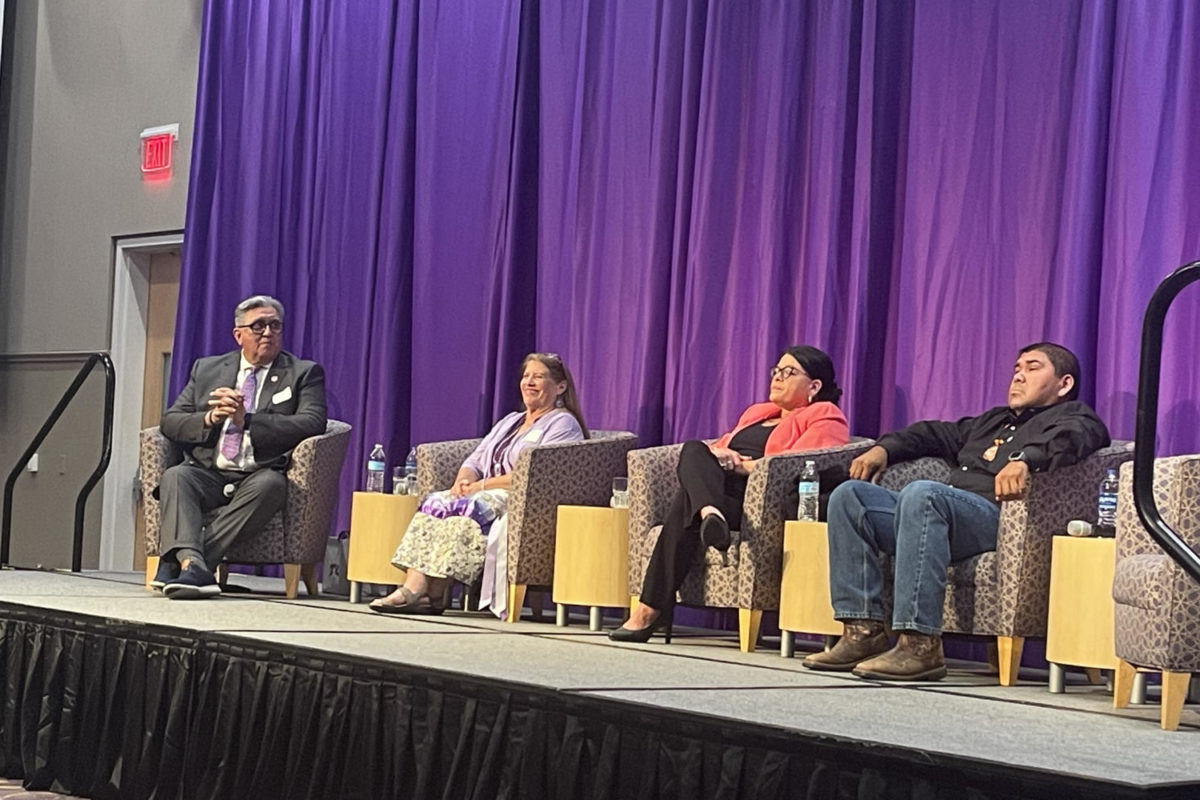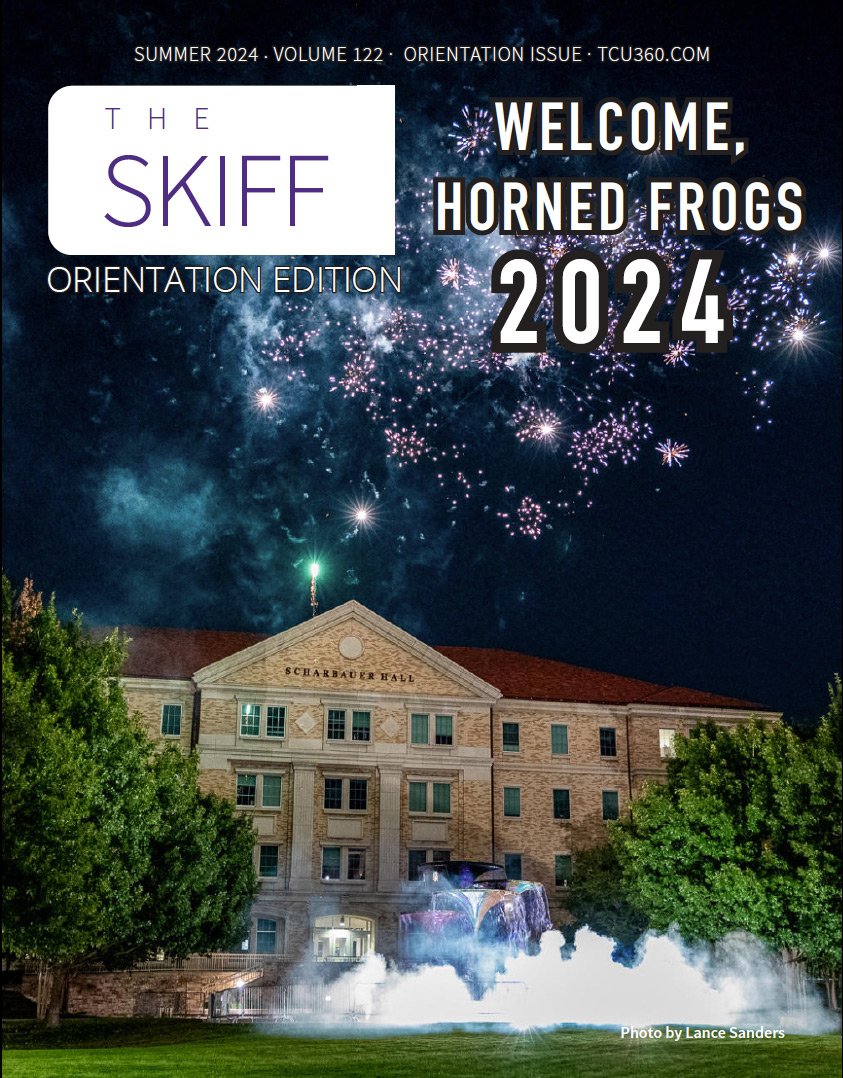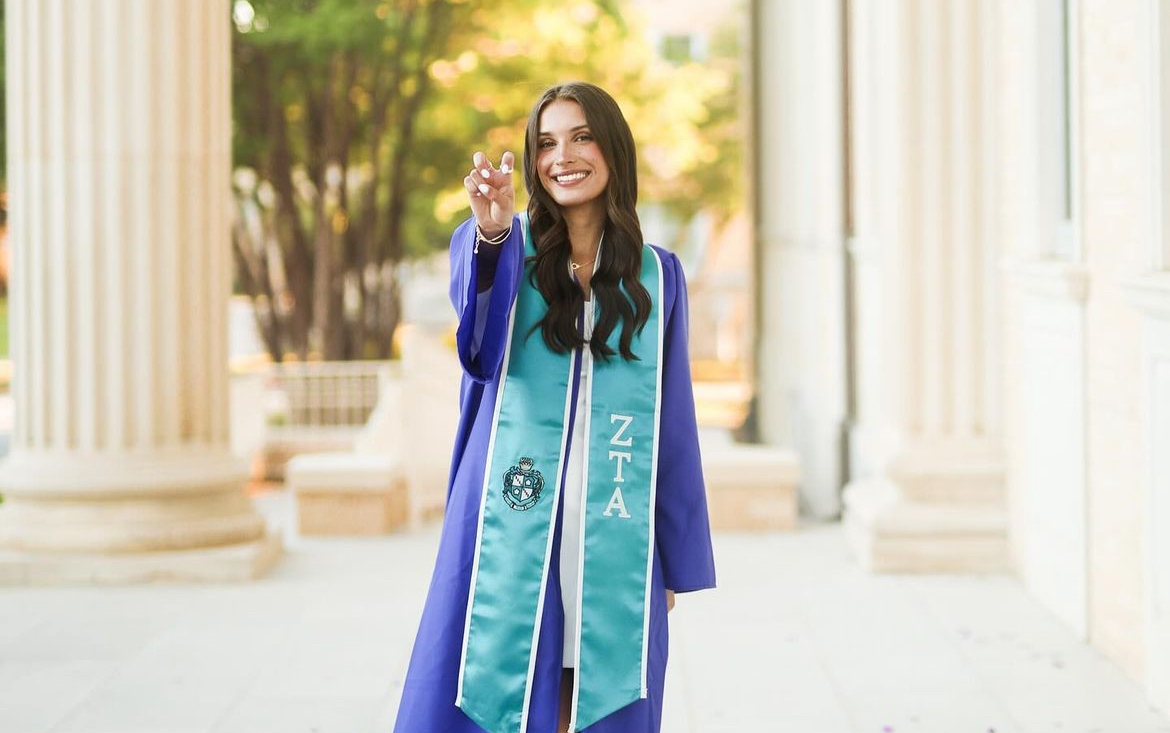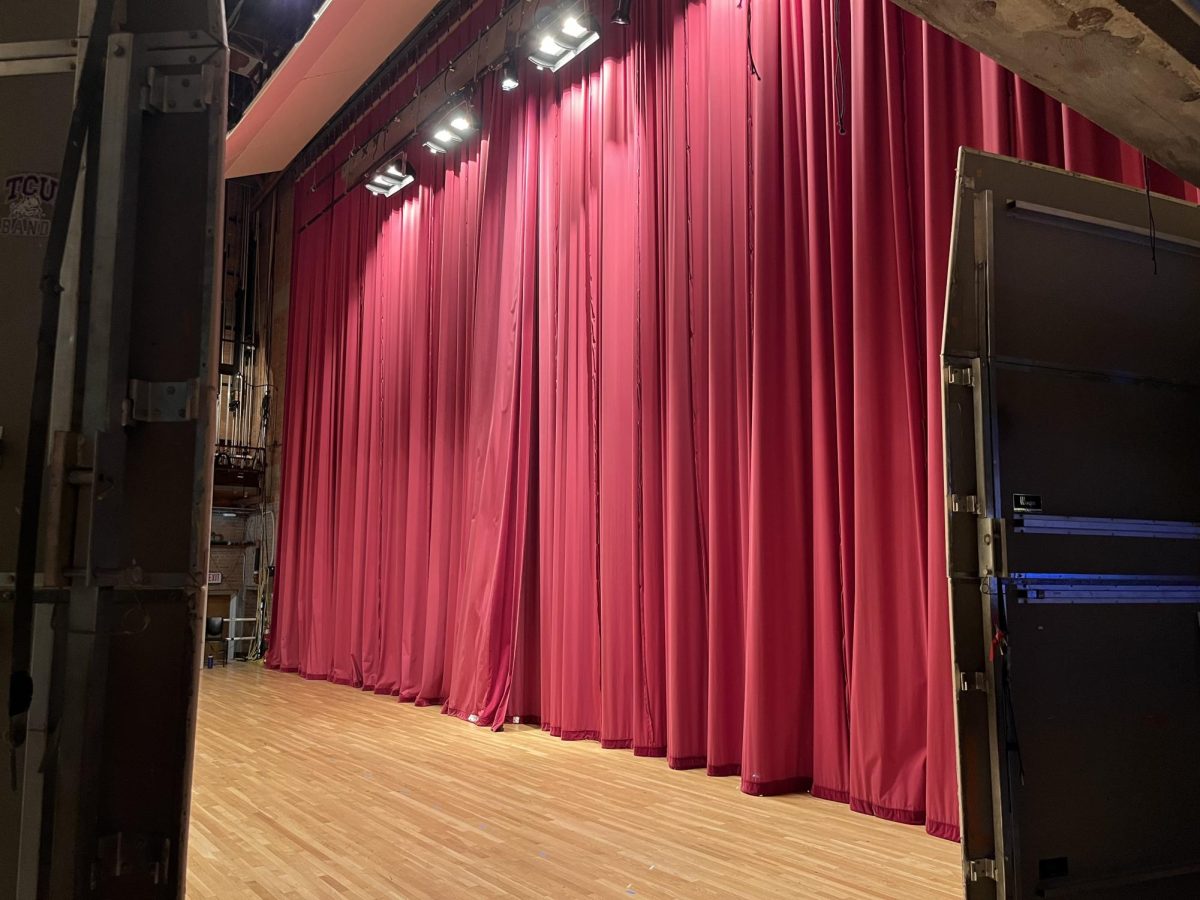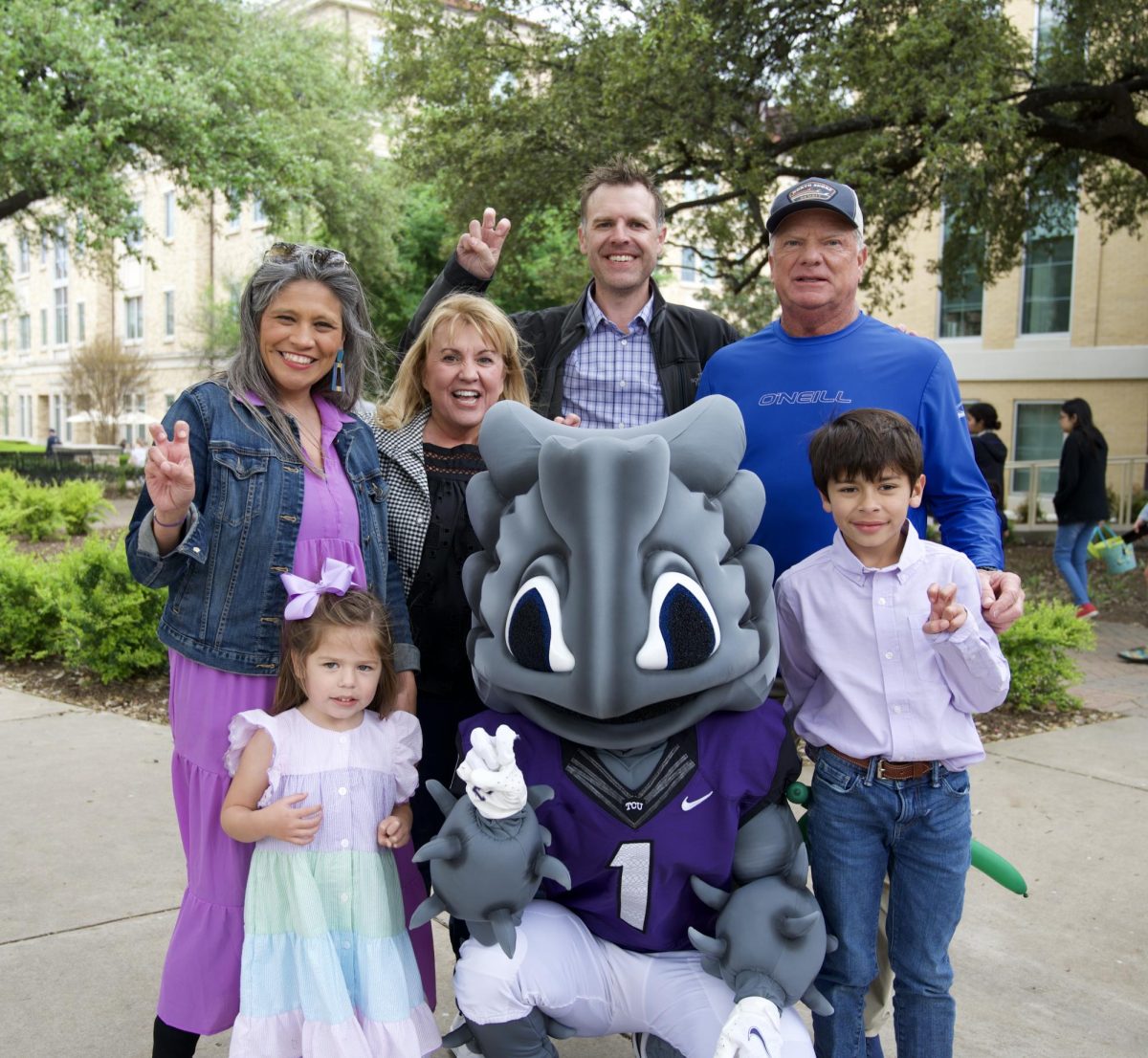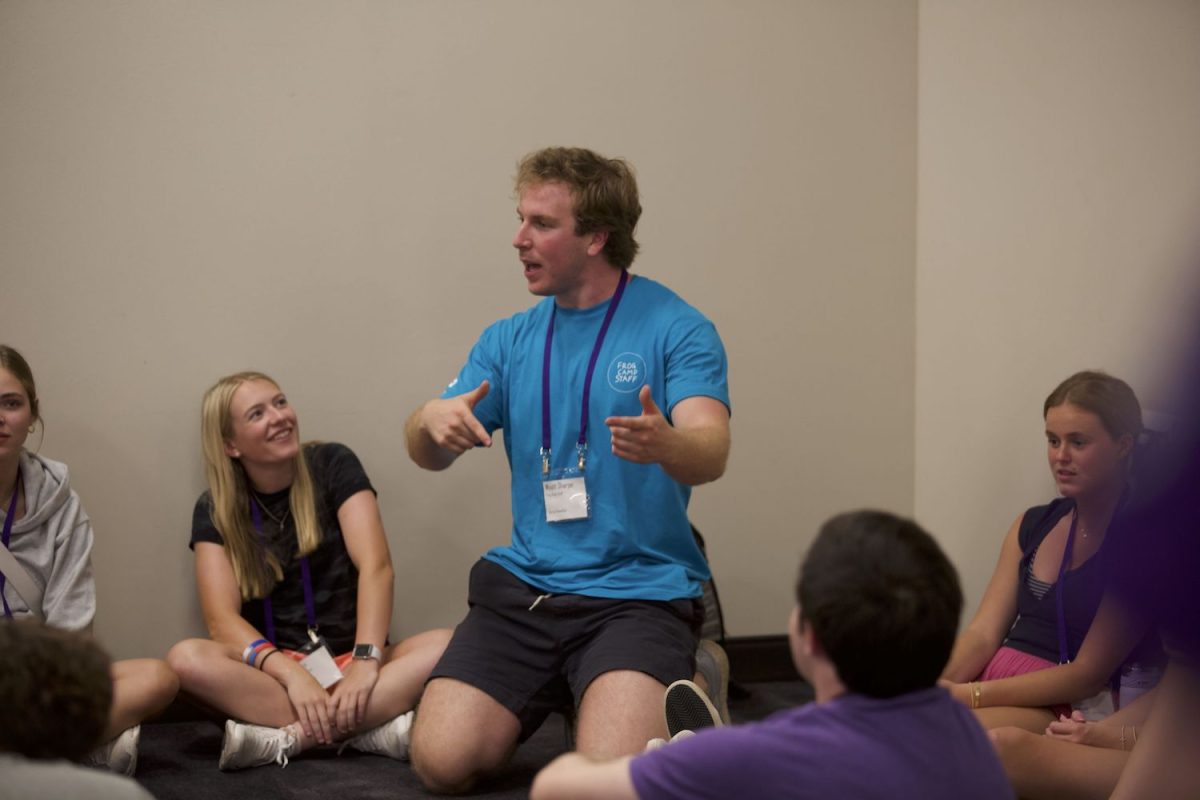In celebration of its seventh Annual Native American and Indigenous Peoples’ Day on Oct. 2, TCU held a symposium that included a panel discussion with prominent indigenous leaders to discuss the university’s relationship with the native community through its diversity and inclusion efforts.
TCU Professor, Dr. Wendi Sierra moderated the panel which included Senior Advisor to the Chancellor and Chief Inclusion Officer Dr. Jonathan Benjamin-Alvarado, Wichita and Affiliated Tribes President Terri Parton, Seminole Nation member Chebon Kernell and TCU Native American Advisory Circle member Annette Anderson.
In his opening remarks, TCU President Daniel Pullin reaffirmed the university’s commitment to improving relationships with indigenous groups.
“It’s a great opportunity to both honor and learn from our past,” Pullin said. “It’s through events like today…that we listen and we learn and we build trust and we strengthen relationships with one another.”
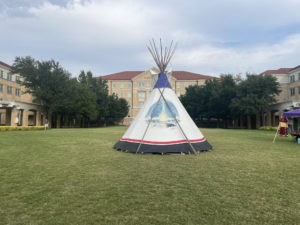
The panel discussion focused on the challenges facing indigenous peoples, particularly within the context of cultural preservation.
With efforts by educational institutions to assimilate native groups, many indigenous peoples have lost touch with their culture, Kernell said.
The panelists also spoke to the damaging impacts of the COVID-19 pandemic on efforts to preserve indigenous culture.
Parton said annual ceremonies and dances within the Wichita tribe, traditions that have lasted for hundreds of years, ceased to continue after the beginning of the pandemic.
“The pandemic did hurt us,” Kernell said. “I don’t know how many first language speakers all of us lost, and I come from a tribal nation. We have 100,000 [speakers], but we lost so many.”
These cultural preservation challenges have made it even more important for TCU to continue to forge ties with the indigenous community to advance the opportunities of native groups, Kernell said.
Anderson and Parton spoke about the importance of having an indigenous presence on TCU’s campus to boost the visibility of native communities.
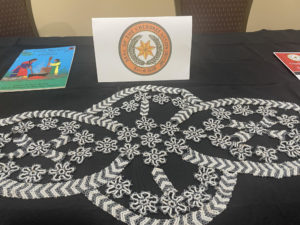
Kernell believes that TCU is doing more than other higher education institutions to build relationships with indigenous groups and is thankful for the university’s efforts, but he thinks more work is still needed.
“What would it look like if TCU continues this work together, this support?” Kernell said. “If we bring tribal representatives from all over the area to come and have that genuine understanding relationship of looking eye to eye and shaking hands and exchanging introductions? Not a letter…but an actual introduction? That’s what my hope is.”
Anderson said she hopes support groups are established for native and indigenous students to feel more welcomed within the TCU community.
Benjamin-Alvarado said he thinks TCU is on the right track to create meaningful connections with indigenous groups. He spoke about the importance of the new Four Directions Scholars Program at TCU for native groups – a scholarship program implemented to increase the presence of indigenous students on campus.
In addition to the new scholars program, TCU is trying to establish an employee resource group for native and indigenous faculty and staff members and expand dining options for indigenous students to improve the experiences of these people during their time at the university.


